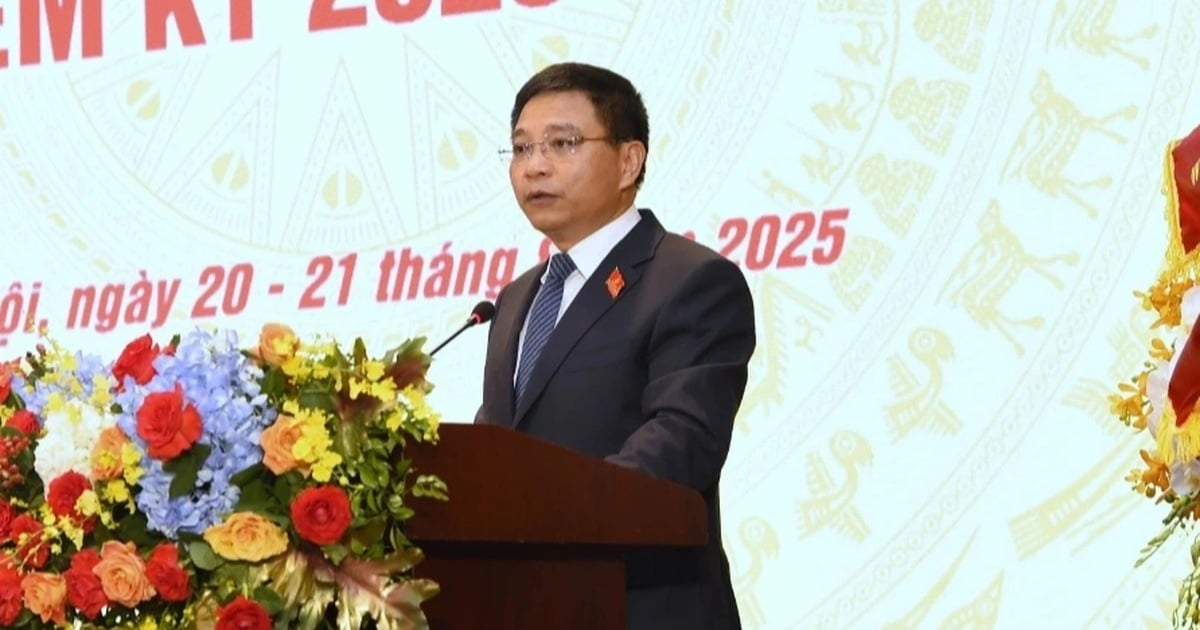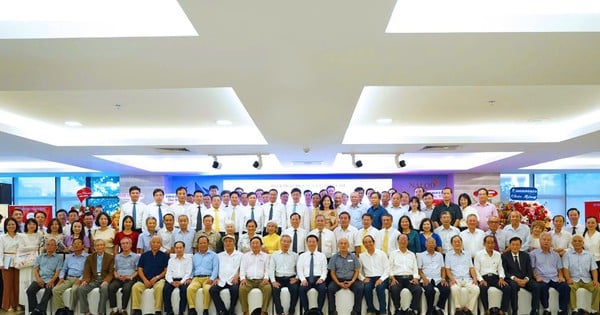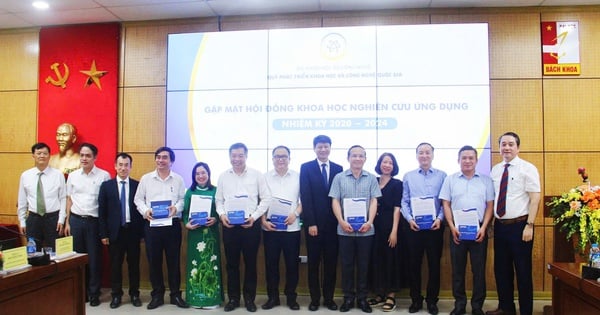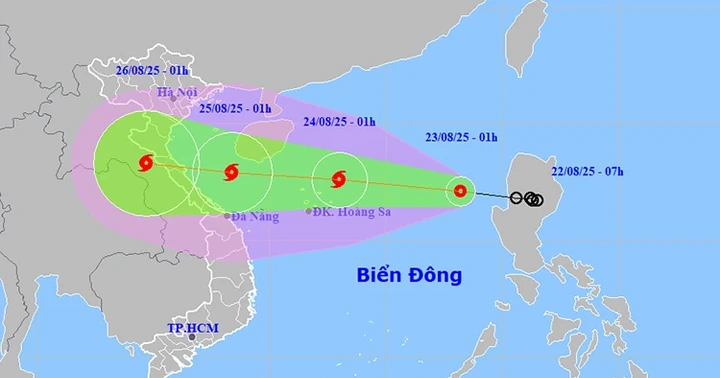Temu, an e-commerce platform from China, is causing a stir in Vietnam. With great deals and extremely low prices, Temu has easily attracted Vietnamese consumers even though the platform has not been officially registered with the Ministry of Industry and Trade .
 |
| The recommendation that Vietnamese consumers should be cautious when purchasing goods from e-commerce platforms that are not registered in Vietnam to protect their rights has also been issued by management agencies. (Source: Economics and Urban) |
The emergence of Temu benefits consumers but also poses challenges for the market and regulatory agencies in terms of tax, protection of domestic production and consumer rights.
When the "storm" Temu appeared
From the end of September 2024, Temu, a cross-border e-commerce platform belonging to PDD Holdings, the group that currently owns the e-commerce site Pinduoduo (China), has officially entered the Vietnamese e-commerce market. With great deals and extremely low prices, this cross-border e-commerce platform from China is causing a fever in Vietnam.
Temu stands out with its super cheap products, from household appliances, fashion to technology accessories. Mr. Hoa, a customer in Hanoi, shared that he downloaded Temu after seeing many attractive advertisements on Facebook. Hoa bought some cheap household products such as towels, charging cables, children's toys, for only a few tens of thousands of VND. Although the products were only at the "market" level, he was still satisfied because of the low price and convenience.
Not only Mr. Hoa, thousands of other Vietnamese consumers are also attracted by the price of the products, along with extremely shocking promotional offers for new users. This is what has turned Temu into a "fever" and attracted the attention of many people, especially young people.
Faced with mixed information about this appearance, the Ministry of Industry and Trade has assigned the Department of E-commerce and Digital Economy to request the corporation that currently owns this e-commerce site to register its operations in accordance with current Vietnamese laws. The agency also requested the Ministry of Information and Communications to “have appropriate technical solutions to block” if Temu does not comply with the above request.
Similarly, when receiving a question from a press reporter on the sidelines of the 8th Session of the 15th National Assembly on this issue, Deputy Prime Minister and Minister of Finance Ho Duc Phoc directly requested the General Department of Taxation to review Temu's tax declaration and payment registration in accordance with Vietnam's tax laws.
In fact, the appearance of the “storm” Temu in Vietnam with the direct sales model from manufacturers to consumers in early October has triggered a series of management mechanisms for this business model. A series of new requirements have even appeared, such as researching plans to monitor and manage imported goods circulating through unregistered e-commerce platforms; monitoring, detecting, and handling warehouses and goods collection points (if any) of unregistered cross-border e-commerce platforms...
Also in October, a plan to control imported goods into Vietnam through e-commerce channels as well as assess the impact on the domestic market when foreign goods enter the Vietnamese market through cross-border e-commerce platforms was set out. Standards and regulations for goods under the management of the Ministry of Industry and Trade will also be developed...
The recommendation that Vietnamese consumers should be careful when purchasing goods from e-commerce platforms that are not registered in Vietnam to protect their rights has also been issued by management agencies.
According to regulations, cross-border online retail platforms with Vietnamese domain names, Vietnamese display language, or more than 100,000 transactions per year from Vietnam must register their operations with the Ministry of Industry and Trade. However, according to information from the Department of E-commerce and Digital Economy, before Temu, there were still platforms that did not comply with this regulation such as: Shein, 1688... with similar models operating in Vietnam.
Require self-renewal to adapt to the global e-commerce "wave"
During the working session in the first working week of the delegates in this National Assembly session, the issue of Temu was raised with a multi-dimensional perspective, not simply about the management of e-commerce platforms. National Assembly delegate Hoang Van Cuong (Hanoi delegation) warned that this is a risk when cheap goods on Temu will eliminate domestic production, forcing domestic businesses and stores to close. "We certainly cannot ban these cross-border purchasing activities, because we are opening up trade; but there must be control over the quality, origin, and provenance of goods," delegate Hoang Van Cuong stated his opinion.
According to statistics, e-commerce in Vietnam is growing very rapidly. In the first nine months of 2024, the country's e-commerce revenue reached about 28 billion USD, an increase of 36% over the same period last year.
The question is how much of this tens of billions of dollars are Vietnamese goods? This is also the question that many countries around the world are asking when trying to deal with Temu.
With Temu, instead of buying goods from a major brand on the market, consumers can buy that product from the manufacturer for the major brand, but at a much lower cost... From the beginning of October, Vietnamese consumers can access these goods files by going to the application stores on their phones to download the app and buy and pay on the Temu platform with the Vietnamese version. This means that Vietnamese businesses are facing enormous competitive pressure, and is putting Vietnamese businesses in an extremely difficult position.
For example, with the same product, Vietnamese enterprises importing it will have to pay tax and label the origin, but if selling through cross-border e-commerce platforms such as Temu or Shein, they will not. This is a big problem, requiring state management agencies to have immediate solutions.
And the story of Temu does not stop at price competition but also opens up big questions about legal and tax management aspects. According to the provisions of the Law on Tax Administration and Circular 80/2021/TT-BTC, foreign suppliers generating revenue in Vietnam must declare and pay taxes. The Electronic Information Portal for Foreign Suppliers has been deployed by the General Department of Taxation since 2022 to monitor cross-border e-commerce activities.
On October 30, according to information from the General Department of Taxation, on September 4, 2024, Elementary Innovation Pte. Ltd, the unit operating Temu in Vietnam, completed tax registration through this Portal and was granted a tax code: 9000001289. According to regulations, foreign suppliers such as Temu must declare and pay taxes quarterly. Temu will submit the first declaration for revenue generated in Vietnam from the third quarter of 2024, with the declaration deadline being October 31, 2024. Since Temu is expected to generate taxable revenue in October 2024, the platform will declare revenue in the fourth quarter of 2024 and pay taxes before the deadline of January 31, 2025.
To ensure tax compliance of foreign suppliers like Temu, the General Department of Taxation said it will closely monitor revenue declarations to avoid tax losses. However, this is not easy, especially when international platforms can take advantage of the “permanent establishment” provision to avoid tax obligations. In fact, some companies like Amazon, Meta or Google have requested tax refunds because they claim that they “have no permanent establishment” in Vietnam. This is a big challenge for the tax administration system in determining the tax obligations of foreign suppliers without a physical presence in Vietnam.
According to experts, without corrective measures, this gap will make it difficult for domestic enterprises to compete and weaken the domestic economy. However, to ensure consumer rights, tax revenue and protect domestic production, authorities need to improve the legal framework and introduce effective management measures. From tighter tax supervision to requiring foreign suppliers to strictly comply with consumer protection standards, it is clear that the emergence of Temu and other cross-border e-commerce platforms poses urgent requirements for Vietnamese managers. Not only are measures needed to monitor taxes and protect domestic production, but improving the legal corridor to keep up with the development speed of global e-commerce is also necessary.
The General Department of Taxation also said that there are currently about 115 foreign suppliers registering and paying taxes via the Electronic Information Portal, with the tax contribution to the state budget reaching more than 18 trillion VND. However, this is only a small part of e-commerce transactions in Vietnam. Many foreign suppliers have not declared and fully fulfilled their tax obligations, causing losses to the state budget. If the proposed amendments to the Law on Tax Administration are passed, the tax authority will have additional legal tools to require foreign suppliers to pay taxes even though they do not have a physical presence in Vietnam, helping to effectively manage revenue from e-commerce.
It is clear that Temu and other cross-border e-commerce platforms have opened a new chapter in the Vietnamese e-commerce landscape, both providing consumers with a wide range of shopping options and posing significant challenges to the domestic market and regulatory agencies. Because the Temu model is forcing manufacturers to restructure their operations to achieve more reasonable prices and higher quality, distribution and retail channels are also forced to seek suitable new models.
The development of cross-border e-commerce, such as the case of Temu, is inevitable in the era of globalization. At that time, domestic enterprises are forced to change, innovate, and seek new operating models to compete in the market, so an open business environment and an institution that promotes development will be a very important support.
And many economic experts point out that the challenges are real but also bring opportunities for strong changes not only for businesses that want to grow bigger and stronger, but also for the Government's efforts in implementing institutional reforms and removing "bottlenecks" in the economy. Ensuring fairness in tax obligations, protecting domestic production, and protecting consumer rights are key factors in building a sustainable and healthy digital economy. Only then can Vietnam benefit from the global e-commerce wave, while maintaining stability for the domestic market and protecting the interests of domestic businesses.
Source



![[Photo] President Luong Cuong attends special political-artistic television show "Golden Opportunity"](https://vstatic.vietnam.vn/vietnam/resource/IMAGE/2025/8/22/44ca13c28fa7476796f9aa3618ff74c4)
![[Photo] President Luong Cuong receives delegation of the Youth Committee of the Liberal Democratic Party of Japan](https://vstatic.vietnam.vn/vietnam/resource/IMAGE/2025/8/22/2632d7f5cf4f4a8e90ce5f5e1989194a)


![[Photo] Prime Minister Pham Minh Chinh chairs the conference to review the 2024-2025 school year and deploy tasks for the 2025-2026 school year.](https://vstatic.vietnam.vn/vietnam/resource/IMAGE/2025/8/22/2ca5ed79ce6a46a1ac7706a42cefafae)

































































































Comment (0)